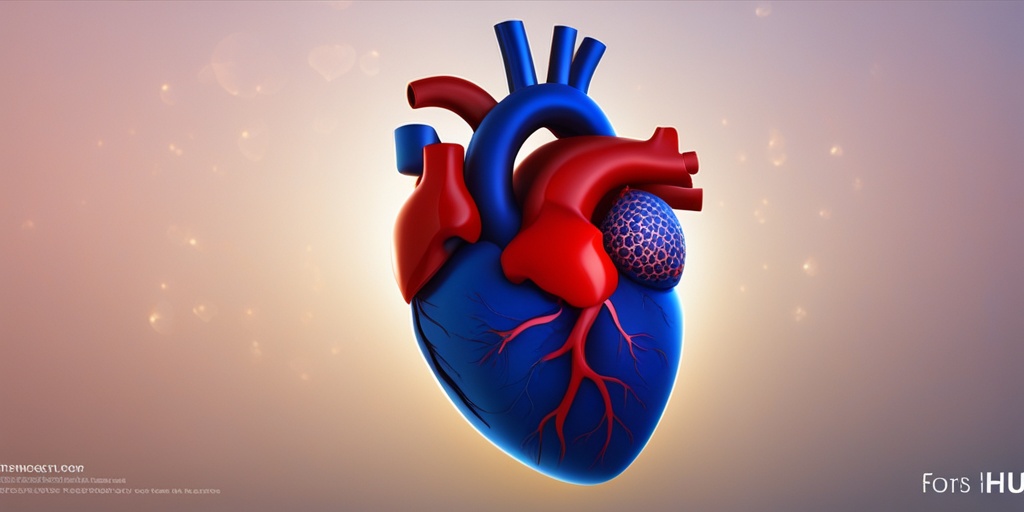What Is Congestive Heart Failure?
Congestive heart failure (CHF) is a chronic condition where the heart is unable to pump enough blood to meet the body’s needs. It’s a serious condition that affects millions of people worldwide, and it’s essential to understand what it is, its symptoms, and how it can be managed.
What Happens in CHF?
In a healthy heart, the heart muscle pumps blood efficiently, supplying oxygen and nutrients to the body’s tissues. However, in CHF, the heart muscle becomes weakened, making it difficult for the heart to pump blood effectively. This can lead to a buildup of fluid in the lungs, legs, and other parts of the body, causing congestion.
The heart is not failing, but rather, it’s struggling to keep up with the body’s demands. CHF can be caused by various factors, including high blood pressure, coronary artery disease, heart valve problems, and cardiomyopathy.
CHF Symptoms and Warning Signs
Recognizing the symptoms of CHF is crucial for early diagnosis and treatment. If you or a loved one is experiencing any of the following symptoms, consult a healthcare professional:
Common Symptoms of CHF:
- Shortness of breath (dyspnea): Feeling winded even when doing simple tasks or lying down.
- Fatigue: Feeling extremely tired or weak, even after resting.
- Swollen legs, ankles, and feet (edema): Fluid buildup causing swelling in the lower extremities.
- Rapid or irregular heartbeat (palpitations): Feeling like your heart is racing or skipping beats.
- Coughing or wheezing: Coughing or wheezing due to fluid buildup in the lungs.
- Dizziness or lightheadedness: Feeling faint or dizzy when standing up or changing positions.
It’s essential to remember that CHF symptoms can be similar to those of other conditions, so an accurate diagnosis can only be made by a healthcare professional.
If you’re concerned about CHF or have questions about your symptoms, consult with your healthcare provider or visit Yesil Health AI for evidence-based health answers.
Stay tuned for the next part of this series, where we’ll explore the diagnosis, treatment, and management of CHF. 💊

Stages of Congestive Heart Failure
Congestive heart failure (CHF) is a chronic condition that affects millions of people worldwide. It’s essential to understand the stages of CHF to provide adequate care and management. The New York Heart Association (NYHA) has classified CHF into four stages, which help healthcare professionals assess the severity of the condition.
NYHA Class I: Mild CHF
In this stage, patients experience mild symptoms, such as shortness of breath and fatigue, but only during physical activity. They can still perform daily tasks without significant discomfort.
NYHA Class II: Moderate CHF
At this stage, symptoms worsen, and patients experience shortness of breath and fatigue even when performing mild physical activities. They may need to rest frequently during daily tasks.
NYHA Class III: Severe CHF
In this stage, patients experience significant shortness of breath and fatigue even at rest. They may need to stop and rest frequently during daily activities.
NYHA Class IV: Advanced CHF
This is the most severe stage, where patients experience shortness of breath and fatigue at rest, and even minimal physical activity can exacerbate symptoms.
Causes and Risk Factors of CHF
Congestive heart failure can be caused by various factors, including:
Cardiovascular Conditions
High blood pressure, coronary artery disease, and heart valve problems can all contribute to CHF. These conditions can weaken the heart, making it harder for it to pump blood efficiently.
Lifestyle Factors
Smoking, obesity, and a sedentary lifestyle can increase the risk of developing CHF. These factors can lead to high blood pressure, high cholesterol, and diabetes, which are all risk factors for CHF.
Medical Conditions
Certain medical conditions, such as diabetes, kidney disease, and thyroid disorders, can increase the risk of developing CHF. These conditions can damage the heart and blood vessels, making it harder for the heart to function properly.
Understanding the stages and causes of CHF is crucial for effective management and treatment. By recognizing the risk factors and symptoms, individuals can take proactive steps to prevent or manage this condition. 💊

How Is Congestive Heart Failure Diagnosed?
Congestive heart failure (CHF) diagnosis can be a complex process, as it requires a combination of physical examination, medical history, and diagnostic tests. If you suspect you or a loved one might be experiencing CHF symptoms, it’s essential to consult a healthcare professional for an accurate diagnosis.
Physical Examination and Medical History
The diagnostic process typically begins with a physical examination and a thorough review of your medical history. Your healthcare provider will ask questions about your symptoms, such as:
- Fatigue or shortness of breath
- Swollen legs, ankles, or feet
- Chest pain or discomfort
- Rapid or irregular heartbeat
- Coughing or wheezing
They will also perform a physical examination to check for signs of fluid buildup, such as:
- Swollen neck veins
- Abnormal heart sounds
- Enlarged liver or spleen
- Swollen legs or ankles
Diagnostic Tests
To confirm the diagnosis, your healthcare provider may order one or more of the following diagnostic tests:
- Echocardiogram: Uses sound waves to create images of the heart, allowing your healthcare provider to assess heart function and detect any abnormalities.
- Electrocardiogram (ECG or EKG): Measures the heart’s electrical activity to identify any irregularities.
- Chest X-ray: Helps identify fluid buildup in the lungs or an enlarged heart.
- Blood tests: Checks for signs of heart failure, such as elevated levels of brain natriuretic peptide (BNP) or N-terminal pro-B-type natriuretic peptide (NT-proBNP).
- Stress test: Assesses the heart’s ability to function under physical stress.
- Cardiac catheterization: Uses a thin tube and dye to visualize the heart’s blood vessels and identify any blockages.
These diagnostic tests help your healthcare provider determine the severity of CHF and develop an appropriate treatment plan.
CHF Treatment Options and Medications
Congestive heart failure treatment typically involves a combination of lifestyle changes, medications, and in some cases, medical devices or surgery. The goal of treatment is to manage symptoms, slow disease progression, and improve quality of life.
Lifestyle Changes
To manage CHF, it’s essential to make the following lifestyle changes:
- Reduce sodium intake: Limit sodium to less than 2,000 milligrams per day to reduce fluid buildup.
- Increase physical activity: Engage in regular, low-intensity exercise, such as walking or yoga, to improve cardiovascular health.
- Quit smoking: Smoking cessation can significantly reduce the risk of CHF complications.
- Manage stress: Practice stress-reducing techniques, such as meditation or deep breathing, to minimize stress’s impact on the heart.
Medications
Medications play a crucial role in CHF treatment. Your healthcare provider may prescribe:
- ACE inhibitors or ARBs: Reduce blood pressure and alleviate strain on the heart.
- Beta blockers: Slow the heart rate and reduce blood pressure.
- Diuretics: Help remove excess fluid and sodium from the body.
- Inotropes: Increase the heart’s pumping ability.
- Aldosterone antagonists: Reduce fluid buildup and alleviate symptoms.
It’s essential to work closely with your healthcare provider to develop a personalized treatment plan that addresses your unique needs and health status.

Lifestyle Changes for Managing CHF
Living with Congestive Heart Failure (CHF) requires significant lifestyle changes to manage the condition effectively. While it may seem overwhelming, incorporating these changes into your daily routine can greatly improve your quality of life and reduce the risk of complications. 💪
Dietary Changes
A heart-healthy diet is essential for managing CHF. Focus on consuming:
- Low-sodium foods: Limit sodium intake to less than 2,000 milligrams per day to reduce fluid buildup.
- Fresh fruits and vegetables: Rich in potassium, vitamins, and minerals, these foods help lower blood pressure and reduce fluid retention.
- Whole grains: Choose whole, unprocessed grains like brown rice, quinoa, and whole-wheat bread to increase fiber intake.
- Lean protein sources: Opt for low-fat dairy products, poultry, and fish to reduce saturated fat intake.
Fluid Management
Monitoring fluid intake is crucial for CHF patients. Here are some tips:
- Limit fluid intake: Restrict fluid consumption to 2 liters (67.6 ounces) per day to prevent fluid buildup.
- Monitor urine output: Keep track of your urine output to ensure you’re not retaining excess fluid.
- Avoid salty foods: Limit or avoid foods high in sodium to reduce fluid retention.
Exercise and Physical Activity
Regular exercise can help improve cardiovascular health and reduce CHF symptoms. However, it’s essential to:
- Consult your doctor: Before starting any exercise program, consult with your doctor to determine the appropriate intensity and frequency.
- Start slowly: Begin with short, gentle exercises and gradually increase duration and intensity.
- Focus on aerobic exercises: Activities like walking, cycling, or swimming can help improve cardiovascular health.
Stress Management
Chronic stress can exacerbate CHF symptoms. Engage in stress-reducing activities like:
- Meditation and deep breathing: Practice relaxation techniques to reduce stress and anxiety.
- Yoga and tai chi: Gentle exercises that promote relaxation and flexibility.
- Leisure activities: Engage in hobbies or activities that bring you joy and help reduce stress.
By incorporating these lifestyle changes into your daily routine, you can better manage your CHF and improve your overall quality of life. Remember to consult with your doctor before making any significant changes to your lifestyle. 💕
Complications of Untreated Congestive Heart Failure
Untreated Congestive Heart Failure (CHF) can lead to severe complications that significantly impact your quality of life. It’s essential to understand the potential risks and take proactive steps to manage your condition. ⚠️
Cardiac Complications
Untreated CHF can lead to:
- Cardiac arrhythmias: Abnormal heart rhythms can increase the risk of stroke, heart attack, or even death.
- Cardiac arrest: The heart may stop beating, leading to cardiac arrest.
- Heart valve problems: CHF can cause heart valves to malfunction, leading to further complications.
Respiratory Complications
Untreated CHF can also lead to:
- Pulmonary edema: Fluid buildup in the lungs can cause respiratory failure.
- Chronic respiratory failure: Long-term respiratory problems can lead to chronic respiratory failure.
- Pneumonia: Increased risk of developing pneumonia due to fluid buildup in the lungs.
Other Complications
Untreated CHF can also lead to:
- Kidney damage: Reduced blood flow to the kidneys can cause kidney damage or failure.
- Liver damage: CHF can cause liver congestion, leading to liver damage or failure.
- Malnutrition: Poor appetite and digestive issues can lead to malnutrition.
It’s essential to work closely with your healthcare provider to manage your CHF and prevent these complications. By making lifestyle changes and adhering to your treatment plan, you can reduce the risk of these complications and improve your overall health. 💊

Frequently Asked Questions about CHF (Congestive Heart Failure)
Here are some frequently asked questions about CHF (Congestive Heart Failure) that may help you better understand the condition:
What is CHF (Congestive Heart Failure)?
CHF, also known as Congestive Heart Failure, is a condition in which the heart is unable to pump enough blood to meet the body’s needs. This can lead to fluid buildup in the lungs, legs, and other parts of the body.
What are the symptoms of CHF?
Common symptoms of CHF include:
- Shortness of breath (dyspnea)
- Fatigue
- Swollen legs, ankles, and feet (edema)
- Coughing or wheezing
- Rapid or irregular heartbeat
- Chest pain
What are the causes of CHF?
CHF can be caused by:
- Coronary artery disease
- High blood pressure
- Heart valve problems
- Cardiomyopathy
- Heart attack
How is CHF diagnosed?
CHF is typically diagnosed through a combination of:
- Medical history and physical exam
- Chest X-ray
- Electrocardiogram (ECG or EKG)
- Echocardiogram
- Blood tests
What is the NYHA classification for CHF?
The NYHA (New York Heart Association) classification is a system used to classify the severity of CHF. It ranges from Class I (mild) to Class IV (severe).
How is CHF treated?
Treatment for CHF typically involves a combination of:
- Medications to reduce symptoms and slow disease progression
- Lifestyle changes, such as a low-sodium diet and regular exercise
- Device therapy, such as a pacemaker or implantable cardioverter-defibrillator (ICD)
- Surgery, in some cases
What is the prognosis for CHF?
The prognosis for CHF varies depending on the severity of the condition and the individual’s overall health. With proper treatment and lifestyle changes, many people with CHF can lead active and fulfilling lives.
Can CHF be prevented?
While CHF cannot be completely prevented, reducing the risk of developing the condition involves:
- Maintaining a healthy weight
- Exercising regularly
- Eating a balanced diet
- Managing stress
- Getting regular check-ups and screenings
We hope this FAQ has been helpful in answering your questions about CHF (Congestive Heart Failure). If you have any further questions or concerns, be sure to speak with your healthcare provider. 💊




